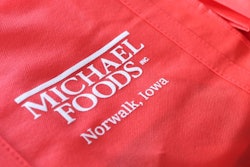Charoen Pokphand Foods (CP Foods) has shared its expertise in egg products with Ah Yone Oo Learning Center, which has helped fill bellies of the children who are living in the remote area between the boarder of Thailand and Myanmar during the Covid-19 outbreak.
The Ah Yone Oo Learning Center, Mae Sot District, Tak Province, has been providing education for both Thai students and ethnic children. The COVID-19 Pandemic has halved the number of children there as many of them are unable to study online. However, the learning center still continues its task to promote the learning of disadvantaged and ethnic children with CP Foods’ “Raising Layer for Student's Lunch” Project, which helps ensure the students of sufficient food supplies.
The purpose of this campaign aims at providing children and youth nationwide with opportunities to access quality protein.
Director of the Learning Center said the back area of the school is used for learning outside the classroom with vegetable gardening and a laying hen house to raise chicken eggs for students lunch.
The director said, "This project was made possible by kind efforts of Charoen Pokphand Foods Public Company Limited (CP Foods), Charoen Pokphand Rural Life Development Foundation together with a network of partners who share the same commitment in contributing to food security and pushing the community to have their own sustainable food production."
CP Foods is responsible for the transfer of knowledge as well as providing laying hens, animal feed and standard equipment for the first generation of chickens free of charge. Moreover, the company regularly sends experts to provide knowledge on chicken farming, animal health care, farm management as well as managing stocks and finances in order for the project to run smoothly.
The learning center is now raising 120 laying hen. The produce becomes food supplies for children’s lunch even during the epidemic.
Currently, half of the daily egg production is allocated for distribution to the community. Each week, the teachers in charge of the project will bring the eggs, rice and vegetable oil to students' homes for their parents to cook for them. The farthest distance from the center is about 10 kilometers.
The project helps take care of the health of children during the time they are not studying at the center. At the same time, surplus chicken eggs are also sold to community and nearby areas at a price of 80-85 baht per pack of 30 eggs, which is cheaper than the market.















